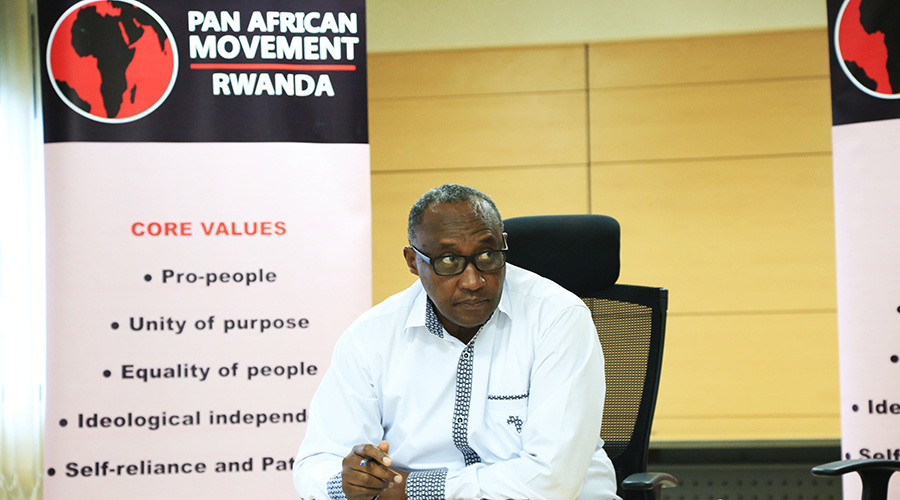Africans should utilise resources at their disposal for development and avoid overreliance on others for support, the Chairman of Pan-African Movement – Rwanda Chapter (PAM-Rwanda), Protais Musoni has said.
He made the observation on Friday, January 31, as PAM-Rwanda launched the third phase of its Leadership Classes, which it said marked progress in the movement’s commitment to fostering transformative leadership across Africa.
Under the Leadership Classes, lecturers from different higher learning institutions in the country received training in Pan-Africanism so that they can impart knowledge to students for a prosperous future and effective leadership, according to PAM-Rwanda.
The event, which took place in Kigali, brought together leaders and participants to reflect on the movement’s mission of reshaping the continent’s institutions and mindsets, while embracing the values of dignity, solidarity, and unity among people of African descent.
“We must shy away from dependence syndrome and see what kind of resources we have that we normally ignore but which can be useful to the development Africa needs. So, that’s the purpose,” Musoni said.
He observed that Africa needs leaders who are equipped to navigate the continent’s challenges and guide the region toward a peaceful and prosperous future.
“The future of Africa lies in our collective hands, and it is our responsibility to foster leadership that is ethical, transformative, and responsive to the needs of our people,” he added.
Musoni indicated that the trained lecturers came from eight higher learning institutions across Rwanda.
The lecturers will be teaching lessons to students in Pan-African clubs at universities.
“We have members of the Pan-African movement in all these institutions, and so we want to give them a course that will make them understand the root cause of Pan-Africanism, what it does want to achieve, how it did come about,” he noted.
Musoni highlighted that Africa has conflicts that should be addressed to achieve the desired continent, and that the issues of Africa must be resolved by Africa pulling together.
PAM-Rwanda’s aim is to develop a generation of leaders who truly understand the needs of people and can work with them so that they can move forward.
“We also want to see how we can nurture ourselves to be active members in development,” he said.
The movement will host the Pan African Government-Rwanda Congress, scheduled for March 15, 2025. Musoni said this will be an important platform for bringing together Africans both on the continent and in the diaspora.
Jean de la Croix Nkurayija, Senior Lecturer in department of governance, development, and societies, said that the Pan-Africanism leadership programme aims to teach African youth, including those in Rwanda-based higher learning institution, so that they become agents of change for the continent’s development.
“There is a need to address the root causes of Africa’s rear place in economic and industrial development, citing dependence on imperialists for assistance, and neocolonialism, among other issues,” he remarked.
For him, rural transformation or industrialisation matters for the development of African countries, including Rwanda.
“That is because Africa is largely dominated rural areas. In Rwanda, rural areas they account for over 75 per cent of the population. These rural areas feed urban dwellers, yet they do not develop [adequately],” he noted.
For Nkulayija, rural transformation or industrialisation means that Africa should carry out agriculture modernisation using technology for development purposes.
“Agro-processing for value addition to agricultural produce is important for higher income generation, especially from export markets.”
